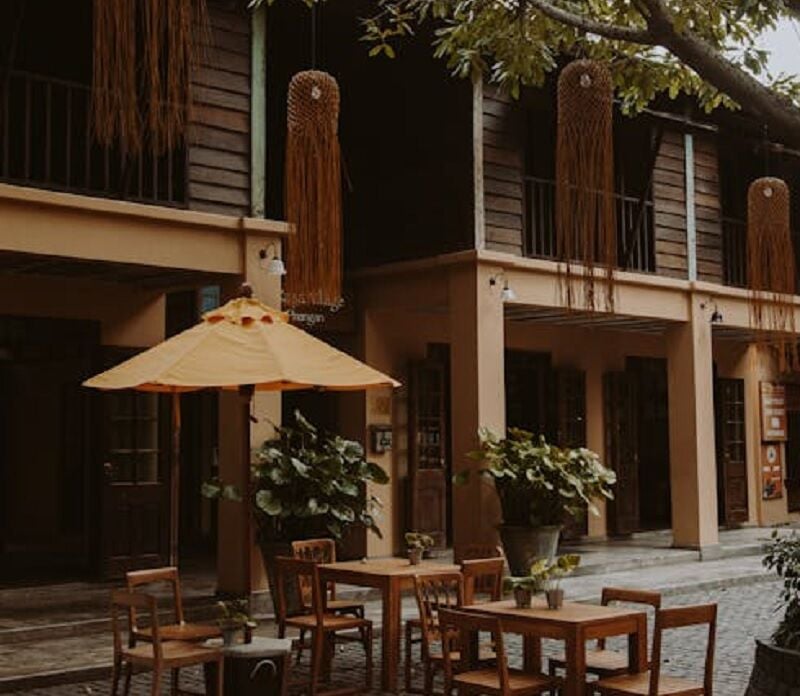Renting vs buying property as an expat in Thailand

Deciding between renting and buying property in Thailand as an expat can feel like navigating a maze with its own set of rules. With over 25 years of experience living in Thailand, it’s clear that while the country offers a paradise for expats, the property market comes with its unique challenges and regulations. Understanding these nuances is key to making an informed decision that aligns with your lifestyle and financial goals.
Firstly, it’s crucial to know that foreigners face restrictions when it comes to owning land in Thailand. However, there’s a silver lining as expats can own condos or buildings, provided the property project is majority Thai-owned. This regulation shapes a significant part of the decision-making process for expats considering sinking roots in Thailand.
Renting vs buying property
Renting in Thailand offers flexibility and avoids the complex web of legalities tied to property ownership. You dodge the hefty commitment of purchasing, which could be pivotal if your plans in Thailand aren’t set in stone. Utilities, a significant part of living expenses, often get inflated in rental arrangements.
Maintenance and minor repairs might add up to 10% of your monthly rent, something to bear in mind when signing a lease. Personalizing your space? Consider the potential costs of repairs and penalties for any alterations.
Buying, on the other hand, taps into a profound sense of ownership and permanence. However, it’s riddled with constraints. Foreigners can’t own land outright but can own condos or structures, albeit with restrictions. A condo project must be 51% Thai-owned, leaving 49% to foreigners.
For those looking at retirement, buying might seem compelling for its stability and potential investment returns. Yet, the legal limitations on foreign ownership suggest that renting could be a more practical and less burdensome route for many.
Ultimately, your choice between renting and buying in Thailand should reflect your lifestyle preferences, financial goals, and the level of commitment you’re willing to engage in a foreign country.Just keep in mind to follow the proper preventions and avoid common mistakes while buying property in Thailand.
Pros and cons of renting

When considering settling in Thailand, perhaps for retirement or a long-term stay, the dilemma of renting versus buying property often arises. Let’s delve into the specifics to aid in your decision-making process.
Flexibility in living arrangements
Renting in Thailand offers unparalleled flexibility. You’re not tied to a single location. Moving due to job changes or simply for a change of scenery becomes significantly easier. For retirees, this flexibility allows for an exploratory approach to finding the perfect community before making any long-term commitments. Importantly, this adaptable living situation is perfect for testing out different areas in Thailand.
- No Long-Term Commitment
- Maintenance and Repairs
- Lower Initial Costs
- Flexibility
Avoiding long-term financial commitment
Choosing to rent over buying frees you from the substantial financial burden associated with property ownership. Aimed at expats unsure about the duration of their stay, renting eliminates the complexities of securing a loan in Thailand—a process known for its challenges. Financially, renting ensures your capital isn’t tied up in real estate, providing liquidity that’s particularly beneficial for retirees managing their savings carefully.
Moreover, the cost of upkeep, repairs, and utilities, which can fluctuate significantly, primarily falls on the landlord. This predictability in monthly expenses allows for more accurate budget planning. Maintenance, a considerable aspect of homeownership, becomes a non-issue, offering peace of mind and financial stability.
- Lack of Ownership
- Rental Increases
- Uncertainty
- No Investment Potential
Pros and cons of buying

Investment potential and equity
Buying property in Thailand offers undeniable financial benefits. Firstly, there’s the potential for property appreciation. Real estate in sought-after locations has historically seen an upward trajectory over time. By investing in such property, you’re not merely securing a roof over your head but also banking on the potential for significant financial gains in the future.
Equity building is another critical aspect. With every mortgage payment, you increase your ownership stake, effectively growing your wealth. This contrasts sharply with renting, where payments contribute to someone else’s mortgage, not your financial growth. Moreover, owning property opens the door to generating passive income through rentals, a particularly appealing prospect if you’re eyeing retirement in Thailand. Becoming a landlord can supplement your retirement income, providing a steady stream while still enjoying the lifestyle Thailand has to offer.
| Pros of Buying | Description |
|---|---|
| Property Appreciation | Possibility of property value increasing over time. |
| Equity Building | Growing ownership and wealth with each mortgage payment. |
| Passive Income | Opportunity to earn from renting out your property. |
Sense of ownership and stability
Owning a home brings an unmatched sense of stability and permanence. Unlike renters, who may face uncertainties like lease non-renewals or rental increases, homeowners enjoy a consistent living environment. This stability is particularly crucial for expats looking to establish long-term residence in Thailand. It offers a solid foundation from which to explore the richness of Thai culture and integrate into the local community.
Furthermore, owning a property allows for a greater degree of personalisation. You have the freedom to modify your space to suit your tastes and needs without restrictions often found in rental agreements. This sense of ownership extends beyond the physical structure to the lifestyle it enables. You’re not just buying property; you’re crafting a home.
- Higher Initial Costs
- Maintenance and Repairs
- Legal Restrictions
Considerations for expats in Thailand

As you navigate the waters of renting or buying property in Thailand, it’s crucial to be well-informed. Thailand offers a picturesque setting for both retirees and working ex-pats. Yet, several pivotal considerations await your attention. Here’s what you need to know:
Legal restrictions and regulations
Thailand’s allure may tempt you into a swift decision. However, delve into the legal landscape before proceeding. Foreign ownership is tightly controlled. As an expat, buying land outright isn’t an option due to legal restrictions. You’ll find alternatives like leasehold agreements or purchasing through a Thai company more feasible.
For condos, a safer bet, at least 51% of the building must be Thai-owned. If set on buying, this route offers a more straightforward path. Remember, each property has a specific title deed (Chanote) crucial for verifying ownership rights. Unequivocally understand this aspect to avert potential legal entanglements.
- Condominium Ownership
- Land Ownership
- Leasehold Agreements
Implications on visa status
Your visa status is another critical factor. Thailand offers various visas, including retirement visas, which have distinct requirements and benefits. Renting might be a more flexible option for those with a non-permanent visa status. It allows you to relocate with relative ease, matching your visa’s duration without the heavy commitment of buying.
On the other hand, owning property might seem appealing but doesn’t guarantee a long-term stay visa. Consider if your current or future visa status restricts property purchase. Some opt for retirement visas, which involve specific financial stipulations but don’t directly affect your eligibility to buy property.
Deciding whether to rent or buy in Thailand as an expat isn’t just about comparing costs. It’s about understanding the legal framework and how it impacts your rights and responsibilities. With the complexities of foreign ownership laws and the nuances of visa implications, it’s clear that making an informed choice requires more than a superficial glance. Whether you’re leaning towards the flexibility of renting or the potential long-term benefits of buying, ensure you’re equipped with the right information. Seeking advice from professionals in the legal and real estate fields can be your best step towards a decision that aligns with your lifestyle and goals in Thailand.
Considering the above-shared details, You can also explore Retiring as a Couple in Thailand, Deciding to spend your retirement years in Thailand is a move that will fill your days with sun, culture, and unparalleled ease. Yet, choosing the perfect spot to call home is key. Let’s dive into a few destinations that stand out for their appeal to retired couples looking for relaxation, adventure, and a high quality of life.
Latest Thailand News
Follow The Thaiger on Google News:


























